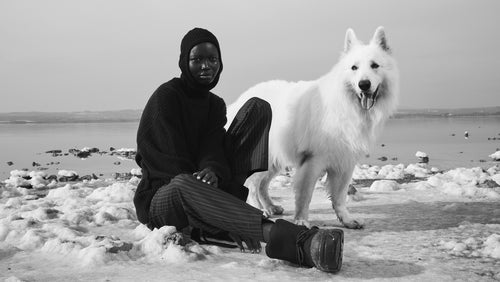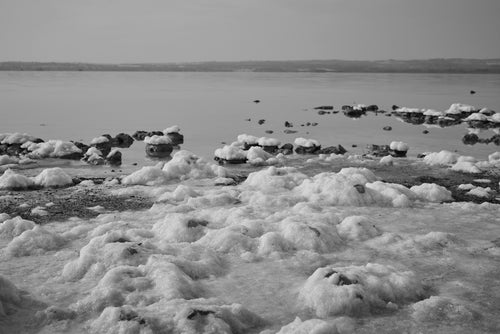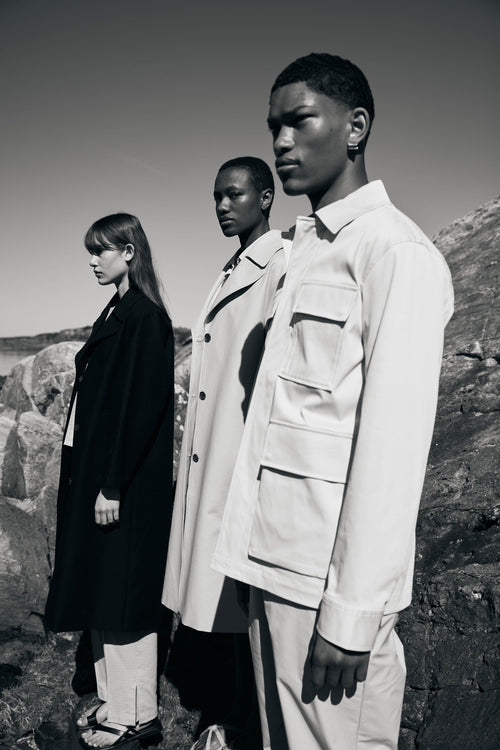

No favorites yet.
Sustainability is all about respect. Respect for how our company affects people, the environment and society. And as a self-respecting company, we continuously strive to lessen our negative impact on the planet.We are a small organisation and cannot change everything on our own. We don’t have all the knowledge, so we chose to consult external environmental and corporate social responsibility experts.
Through careful reviews of our processes, we have prioritised the areas where our own actions can make the most difference.Some changes have already been implemented in full whilst others require a longer process. For us, the important thing is to continually improve and to be transparent in our efforts.


Let us tell you about
Our ambition is to phase out harmful chemicals as soon as possible. A good example of this is the fact that we have banned the use of all PVC. This plastic can have several negative effects on our health and the environment both in the production phase as well as when incinerated. PVC also often contains softening phthalates, which are harmful in several ways to all living beings as well as to the Earth. Some phthalates are prohibited or regulated by law, but not all of them. We have made a decision to avoid PVC completely.
The European chemicals legislation can sometimes feel like a jungle of requirements, permits and restrictions. We, therefore, collaborate with the polymer and textile chemist Stefan Posner, to get ongoing support in our chemical work.
Stefan Posner has over 35 years of experience in research on chemicals in textiles and polymeric materials in collaboration with companies, international and national authorities and academia. He has been working for many years on legal preparations for chemicals for the UNEP Stockholm Convention, the European Commission and several national authorities. Stefan is deeply involved in the research of replacing hazardous chemicals with technically functioning low-toxic alternatives and the development of international European (CEN) and global standards (ISO) for high-risk chemicals such as PFAS.
Stefan continuously updates us with news about health and environmental issues related to chemical use in textile manufacturing and helps us fulfil the demands of REACH (an EU regulation concerning the Registration, Evaluation, Authorisation and Restriction of Chemicals) and other legal requirements. He also informs us of new discoveries of harmful substances and of chemicals that can be dangerous and which may be banned in the future.
To safeguard our high level of ambition regarding the use of chemicals, we regularly request chemical tests from our suppliers, as well as conduct our own. Our most important supplier does also collaborate with Stefan Posner, which facilitates our process.
In our effort to reduce our negative impact on the environment, we are always in search of new and better materials. Padding is an important component in most of our jackets. Most of our padding materials we use are primarily supplied by Thermore®. All their paddings consist of a large part of recycled material, and their goal is to increase this proportion further. In our jackets with down imitation padding, we use Thermore® Ecodown – made from 100% recycled PET bottles.
Animal rights is another aspect of our conscious material choices. As a part of the Fur Free Retailer-initiative, we obviously avoid fur, down, angora and leather in our products. If we use wool, it must be traceable and 100% mulesing free.
There is an increased demand for ecological cotton in the fashion industry right now. However, our view is that synthetic fibre is a more sustainable choice. Ecologically produced cotton is a very resource demanding material. Current synthetic fibres also have a better colourfastness which makes them last longer. Where we still chose to use cotton, we use only very high-quality fabrics to ensure long lasting products.
Functional jackets need water repellent impregnation. Usually, that means they are coated with some kind of Durable Water Repellent Finish (DWRF). DWRF often contains highly fluorinated chemicals (PFASs), which are extremely harmful to our health and environment.
We do not use any PFASs in our production. Instead we use BIONIC-FINISH® ECO from the Rudolf Group – a unique and patented water repellent impregnation which does not contain any fluorinated substances.
The regular DWRF impregnations contain several kinds of PFAS compounds to make fabrics resistant to water, dirt, oil and heat. The most commonly used are C8 and C6 treatments.
C8 is a treatment containing perfluorooctanesulfonic acid (PFOS) and perfluorooctanoic acid (PFOA). These chemicals are toxic to all living organisms and cause reproduction disturbances. C6 is said to be free of PFOS and PFOA, but according to Stefan Posner this treatment is still as toxic as C8.
Today, without using any of these substances we can get a surface that is water repellent but not dirt repellent. The water repellent effect of eco products also diminishes slightly by each wash. However, at ELVINE we regard the care of our planet as considerably more important, and the obvious choice is not to use toxic PFAS compounds. Instead, we urge our customers to take good care of their jackets to make them last longer. Read more in our Care Guide how to best take care of your garments.
We do not own any factories, but work in close cooperation with a few selected suppliers. We are fully aware that our responsibilities for human rights, environment and society extends throughout the value chain. When choosing a new supplier, we make certain they meet our demands and sign up to and follow our Code of Conduct.
Our Code of Conduct is based on international labour law defined by ILO (International Labour Organization), the UN Declaration of Human Rights, the OECD guidelines about Code of Conduct and the UN Global Compact Principles. The Code of Conduct includes, among others, regulations about working conditions, environmental and health responsibilities, working hours, wages, freedom of association and collective bargaining, and a ban on child labour. Our factories are inspected every year to ensure compliance with the Code.
Because of our long-term collaborations, limited and carefully selected partners, we can make sure all factories and manufacturers meet our requirements. Our close cooperation helps to promote and facilitate future improvements, socially as well as environmentally. Together we can take small steps of progress that, in the long term, will contribute to positive development. Our products are made in China, Portugal, Turkey and Italy.



